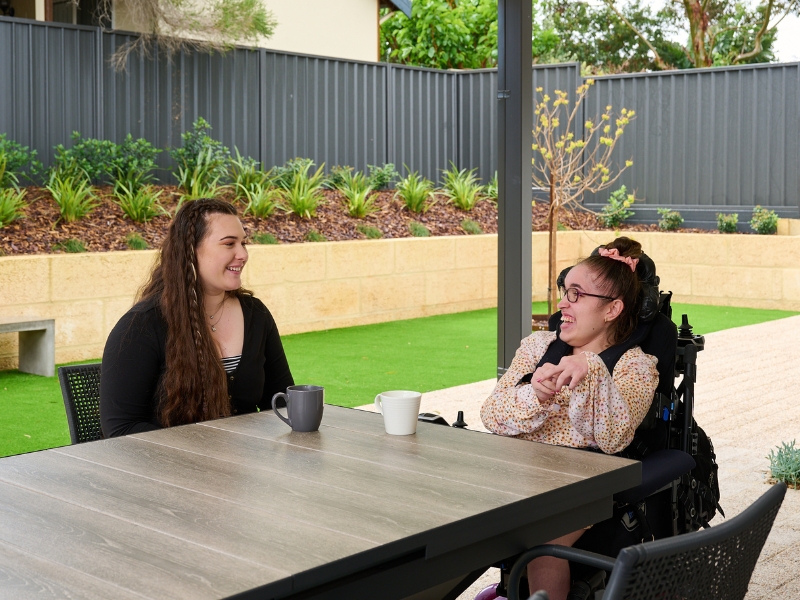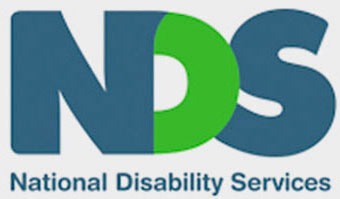5 Game-Changing Disability Support Services
Here are 5 disability support services in Australia people with a disability can access to live more independently.
Independence is a universal aspiration, and for those facing the unique challenges of living with a disability, it’s a journey that might feel complicated, overwhelming or frustrating. Yet, with the right support and resources, it becomes a very achievable goal.
Across Australia, there are hundreds of organisations and services dedicated to helping people with disabilities maintain their independence and lead more fulfilling lives.
In this article, we’ll explore some of the best disability support services and organisations that can help to make independent living a reality.

1. Disability Support Workers
Disability Support Workers are dedicated professionals who provide disability home care and general assistance which is tailored to the specific needs of the individual.
Organisations such as Ability WA, Nulsen Disability Services, HenderCare and Nextt, are Disability Support Providers who can offer a range of disability support services including therapy, personal care, household tasks and companionship.
Disability Support Providers employ and engage support workers with varying skills and attributes, allowing you to be involved in choosing the right support worker for you.
Support Workers can play a crucial role in enhancing your quality of life, promoting independence, and creating a sense of belonging.
Beyond assisting with practical tasks like showering, eating, dressing, cleaning etc, support workers often become sources of emotional support and encouragement. A Support Worker can assist outside the home to support a Participant accessing the community by taking them on outings, shopping, to visit family or friends, or attend medical appointments. Their presence provides a sense of consistency and reliability.
2. Employment Services
Employment Services such as APM go beyond traditional job placement, offering a holistic approach that considers each person’s unique abilities, aspirations, and challenges.
By focusing on skill development, tailored vocational training, and job matching, APM helps individuals with disabilities to find meaningful employment opportunities that align with their capabilities and interests.
They also provide ongoing support, including workplace accessibility adjustments, to ensure a smooth transition into the workforce.
These kinds of disability support services can empower people to lead more self-reliant lives, promoting not only financial independence, but also helping to improve their purpose and overall quality of life.
3. Accessible Housing
A supportive living environment is essential for people with disabilities seeking independence. Accessible housing – equipped with design features such as level flooring, wider doorways, adapted bathrooms and kitchens, carports to accommodate accessible vehicles, and additional storage spaces – allows individuals to move around their home more comfortably.
These specialised housing solutions go beyond physical modifications; they are thoughtfully designed to cater to various needs and preferences. There are a range of housing options that can accommodate specific mobility challenges and cognitive disabilities.
Organisations like Sana Living specialise in specialist disability accommodation (SDA) that provide homes to enable independent living.
4. Assistive Technologies
In today’s digital age, technology plays a huge role in supporting independent living for people with disabilities.
Assistive Technologies such as smart home devices, communication aids, and mobility devices, empower individuals to perform tasks that might otherwise have been a challenge for them.
The constantly evolving world of Assistive Technology can help people with disability more than ever before, to move independently, communicate more effectively, independently control their environment, undertake self-care tasks, and lead more fulfilling lives.
Sana Living’s Specialist Disability Accommodation contains extensive Assistive Technology to further support greater levels of independence.
5. Disability Support Coordinators
Support Coordinators do not provide ‘hands-on’ care to the Participant, but rather assist Participants to build the skills they need to understand and use their NDIS plan.
A Support Coordinator will work with a Participant to ensure a mix of supports are used to live more independently, to increase their capacity to maintain relationships, manage service delivery issues, and be included in their community.
For example, a support coordinator may assist a Participant to find a suitable home that can support their accessibility needs and is close to their community. A Support Coordinator may also apply to increase a Participant’s funding for a support when the Participant’s needs change, and the current funding is no longer appropriate.
Having shed light on some of the most widely-used disability support services, it’s clear that Australia boasts a vibrant network of organisations and services committed to empowering individuals with disabilities – enabling them to embrace independence and a richer quality of life.
Sana Living – Your Path to Independent Living
Sana Living recognises the importance of creating an environment that supports and empowers individuals with disabilities.
Our disability accommodation is designed to cater to specific needs, offering a range of amenities that promote independence and well-being. Our homes deliver a combination of function and style, with an added level of luxury. They are available across Western Australia, Queensland and South Australia.
To learn more about how Sana Living can help you or your loved ones achieve independence, please contact our friendly team today.







